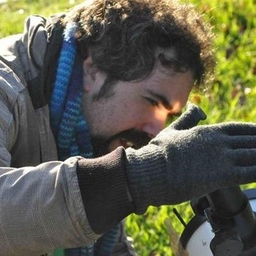
Stephen Luntz
Writer at IFL Science
Writer at IFLS, administrator of NGO internal elections at Above Quota Elections, runner of quirky but seldom financially successful fundraising events.
Articles
-
1 week ago |
iflscience.com | Stephen Luntz |Katy Evans
Can you have a mantle plume without volcanic activity? Geologists weren’t sure until they found this one. Stephen LuntzStephen has a science degree with a major in physics, an arts degree with majors in English Literature and History and Philosophy of Science and a Graduate Diploma in Science Communication. Freelance WriterEditedbyKaty EvansKaty is Managing Editor at IFLScience where she oversees editorial content from News articles to Features, and even occasionally writes some.
-
1 week ago |
iflscience.com | Stephen Luntz |Katy Evans
The question is not only how people survived there, but why, with potentially important answers for understanding ancient culture. Stephen LuntzStephen has a science degree with a major in physics, an arts degree with majors in English Literature and History and Philosophy of Science and a Graduate Diploma in Science Communication.
-
1 week ago |
iflscience.com | Stephen Luntz |Maddy Chapman
When we’re struggling with a load, it would be really nice if our fellow humans could be this forward-thinking, but they’d need to pay attention to others. Stephen LuntzStephen has a science degree with a major in physics, an arts degree with majors in English Literature and History and Philosophy of Science and a Graduate Diploma in Science Communication. Freelance WriterEditedbyMaddy ChapmanMaddy is an editor and writer at IFLScience, with a degree in biochemistry from the University of York.
-
1 week ago |
iflscience.com | Stephen Luntz |Johannes Van Zijl
You’d think there would be a law against this, and scientists thought there was, but somehow it happens, and it could help explain some important mysteries. Stephen LuntzStephen has a science degree with a major in physics, an arts degree with majors in English Literature and History and Philosophy of Science and a Graduate Diploma in Science Communication.
-
1 week ago |
iflscience.com | Stephen Luntz |Katy Evans
You might not expect there to be many health lessons from an animal so distant from us in time and evolution, but new techniques may change that. Stephen LuntzStephen has a science degree with a major in physics, an arts degree with majors in English Literature and History and Philosophy of Science and a Graduate Diploma in Science Communication.
Try JournoFinder For Free
Search and contact over 1M+ journalist profiles, browse 100M+ articles, and unlock powerful PR tools.
Start Your 7-Day Free Trial →X (formerly Twitter)
- Followers
- 701
- Tweets
- 9K
- DMs Open
- No

There are so many things Jimmy Carter did, before, during and after his Presidency, it's not surprising some haven't got much coverage. Still, you would think saving a hemisphere, and possibly the entire planet, would rate a mention. https://t.co/Fif11MOnjC

RT @extremetemps: UNBELIEVABLE IN JAPAN ! Totally insane MINIMUM temperatures up to 28.0C , national November record destroyed and dozens r…

RT @kylegriffin1: A Minnesota woman was charged with three felony counts of voter fraud after authorities say she forged her dead mother's…




